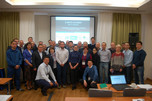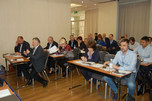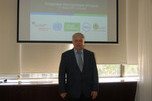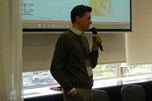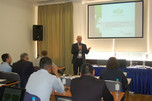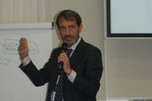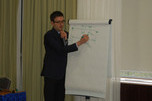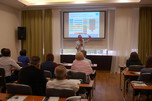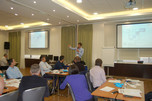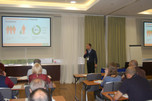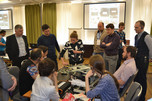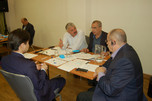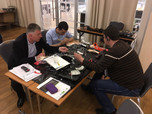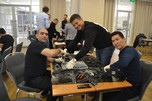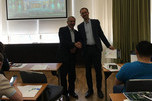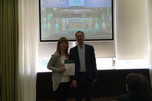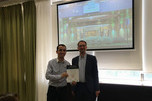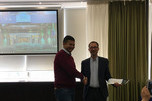E-Waste Academy in Moscow, 2017
May 26, 2017
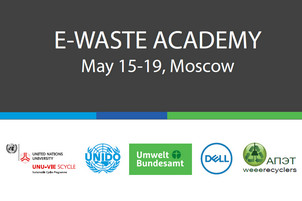
On May 15-19, 2017, a training course of the E-Waste Academy, Managers Edition, took place in Moscow. The course was organized by the UNIDO Centre for International Industrial Cooperation in the Russian Federation (UNIDO CIIC) in collaboration with the United Nations University (UNU), under the financial assistance of the German Environment Agency (UBA) and methodological and organizational support of the international organization for e-waste disposal StEP Initiative and the WEEE Recyclers Association, Russia.
The course gathered over 30 participants representing ministries and governmental agencies, business associations and non-commercial organizations from 8 countries of the Commonwealth of the Independent States (CIS): Azerbaijan, Armenia, Belarus, Kazakhstan, Kirgizstan, Russia, Tajikistan, Uzbekistan. The lectures of the course were delivered by international experts from a number of leading organizations for waste management from: Austria (Elisabeth Herbeck, DRZ); Belgium (Klaus Sparn, Umicore); UK (Federico Magalini, UNU; Jonathan Perry, Dell); Italy (Giorgio Arienti and Luca Campadello, Ecodom); Czech Republic (Michal Mazal, Asekol), Portugal (Nancy Isarin, Ambiendura), Switzerland (Arthur Haarman, Empa), Germany (Klaus Willke; Ralph Wollmann and Isabel Wagner, UBA), Russia.
The course consisted of lectures, seminars, practice sessions, round-table discussions. During the course, the participants had an opportunity to learn about the legislation on WEEE management in different countries, as well as acquire practice-based knowledge on how to organize an e-waste management business in compliance with legal requirements, including on transboundary movements of waste for further processing. Moreover, the participants learnt about easy methods to sort plastics contained in WEEE, which often represents a challenging task that waste-recycling companies face at the start of their business. The dismantling session, during which the participants had to dismantle different types of e-waste, helped them to further understand the specifics of business operations in this field. During this session, the participants learnt about the composition of various appliances, as well about possible ways of commercial use of not only marketable fractions but also of the fractions which are not yet commonly used for commercial purposes. One of the key parts and results of the course were the action plans on developing an environmentally-sound and commercially attractive system of e-waste management for a chosen country or region, that were prepared and presented by the working groups of participants.
On May 18, as part of the E-Waste Academy, UNIDO CIIC in collaboration with the Dmitry Mendeleev University of Chemical Technology of Russia organized a seminar on WEEE management for the teaching staff of Russian universities. The seminar included presentations and reports delivered by international experts, professors of Russian universities, as well as a round-table discussion under the participation of the heads of Russian leading waste-recycling companies. During the round-table discussion, participants touched upon such topics as the current situation and challenges of the waste-recycling industry in Russia, as well as possible ways for universities to contribute to the development of an e-waste collection and recycling sector in Russia.
The course of the E-Waste Academy was conducted within the framework of the project on establishing an integrated regional system of WEEE management in the CIS member-states; the concept of the project was developed and first presented by UNIDO CIIC during the meeting of the Industrial Policy Council of the CIS in 2014.
All in all, the course of the E-Waste Academy has laid the foundations to intensify an active fruitful cooperation among the experts in e-waste management from the CIS member-countries and facilitate the exchange of knowledge and experience among them.

This project is funded by the German Federal Environmental Ministry’s Advisory Assistance Programme (AAP) for the environmental protection in the countries of Central and Eastern Europe, the Caucasus and Central Asia and other countries neighbouring the European Union. It is supervised by the German Environment Agency (UBA).
The responsibility for the content of this publication lies with the authors.


